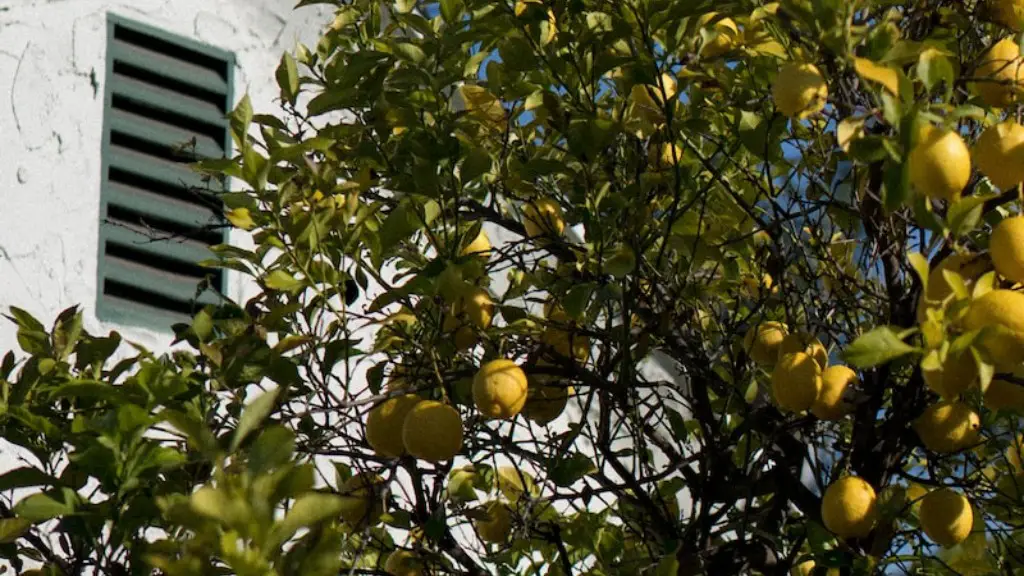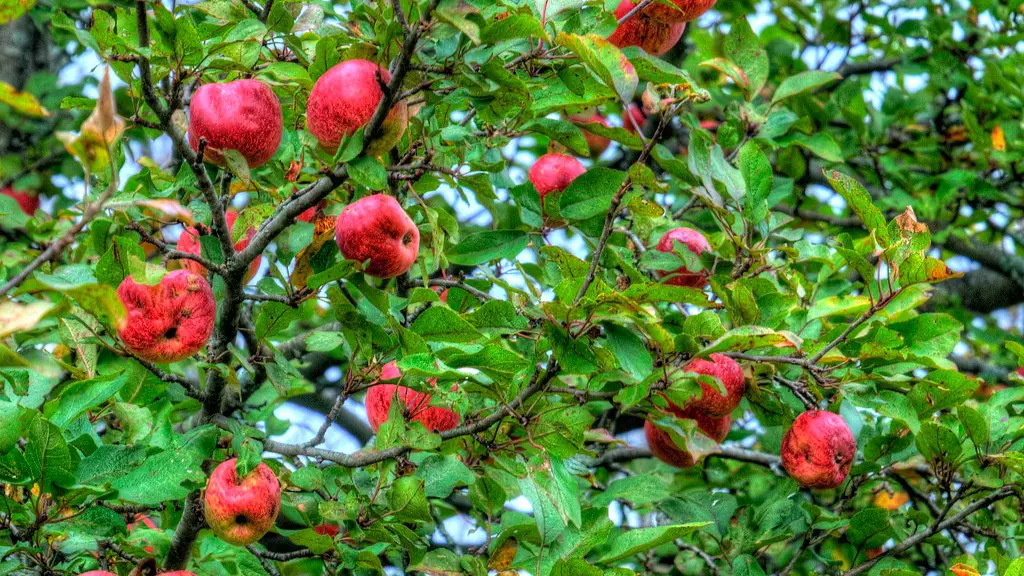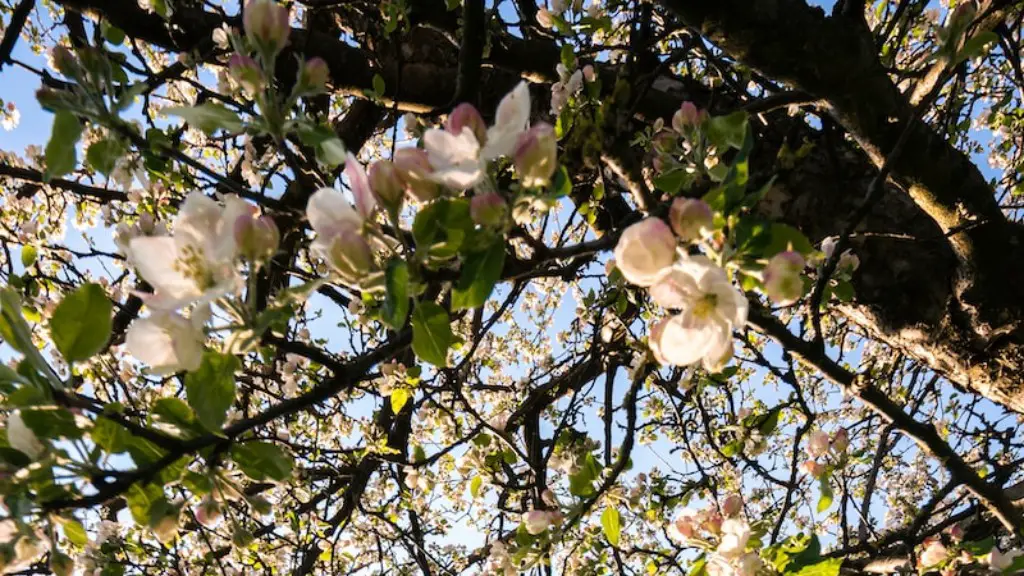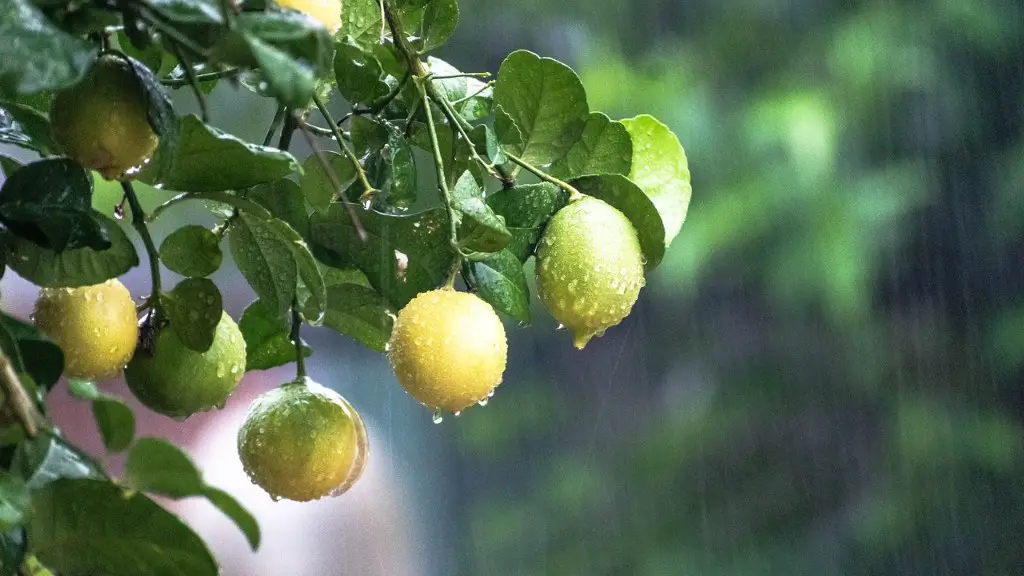It is possible to grow a lemon tree from seed, but it’s important to know whether it will produce fruit. Growing a lemon tree from seed is an exciting and rewarding experience, but it’s important to consider the wide range of factors that affect the growing process, including environmental and genetic conditions. Here is what you need to consider to determine whether growing a lemon tree from seed will produce fruit.
Firstly, genetic factors play a huge role in determining whether a lemon tree from seed will produce fruit. It is important to note that not all seeds contain the same levels of genetic potential, so selecting high-quality, non-hybridized seeds is key. Hybridized seeds are bred for quick growth but often lack the proper genetic makeup that leads to fruit production.
Secondly, environmental conditions must be taken into account when growing a lemon tree from seed. The right temperature and soil conditions are critical in ensuring successful fruit production. Many lemon varieties need cool nights to produce fruit effectively, so planting in a sheltered location, such as in a greenhouse or protected terrace, can be beneficial. Additionally, trees grown in soil with too much or too little moisture can be more prone to diseases and pests, which can interfere with fruit yields.
Thirdly, you also need to factor in how long it takes for a lemon tree from seed to produce fruit. Depending on the variety and environmental conditions, it can take anywhere from three to seven years for the tree to mature and start producing fruit. It’s important to note that if your tree is not bearing fruit after five years, it is likely a sign that something is amiss, and you should take corrective action to help it along.
The fourth factor to consider is the variety of lemon that you are growing from seed. Different varieties have different bloom cycles and require specific temperatures to produce fruit. Some may be suitable for indoor growing, whereas others need to be planted outdoors. Selecting a variety that is suited to your microclimate can be key to successful fruit production.
Invest in the Right Tools
Successful lemon tree cultivation requires the right tools and materials. Investing in a quality soil thermometer is essential for monitoring soil temperatures, which are crucial for achieving optimal fruit-bearing conditions. Additionally, a hand trowel, spade, and pruning clippers can be extremely useful for shaping and cultivating your tree.
You will also need the right fertilizers and potting mixes for optimal growth. Choosing the right fertilizers is not always easy, so it’s important to consult with a soil specialist or experienced gardener who can help you select the right products for your soil type and growing conditions. The right potting mix is essential for providing your tree with the right amount of moisture and air.
Create the Right Conditions
Once you have the right tools and materials, the next step is to create the right conditions for successful growth. The right temperature, soil moisture, and sunlight are essential for cultivating a healthy lemon tree. Ideally, your tree should be located in an area where it can receive direct sunlight for at least six to eight hours a day, and appropriate soil temperatures should be maintained at all times. Keeping the soil moist but not wet is also important for a healthy lemons tree.
Additionally, pruning is an important part of growing a lemon tree from seed. Pruning encourages healthy growth and helps maintain the desired size and shape of your tree. Pruning can be done during the early stages of growth or when the tree reaches maturity. It is important to note, however, that over-pruning can harm the tree and reduce fruit production.
Handle Carefully
Once your lemon tree has begun to produce fruit, it is important to handle it with care. Lemon trees are delicate and can be easily damaged by careless handling. Too much shaking or shaking too often can damage the fruits, so it’s important to pick only what you need, and avoid over-harvesting.
It is also important to monitor the maturing fruit and pick it when it’s ripe. If allowed to overripen, the fruits can be spoiled and will not be edible. In addition, many varieties of lemon trees need to be grafted in order to bear fruit, so if you are not familiar with grafted trees, it may be wise to seek the advice of a professional.
Change of Soil
If a lemon tree from seed does not bear fruit, it’s possible that the soil is not right for it. A change of soil can be beneficial for a lemon tree, as it can provide the necessary nutrients and minerals to support healthy growth. It is important to note that different lemon varieties require different soil types, so it is essential to do research to determine the best soil type for your tree.
It is also important to pay attention to the pH levels of the soil, as this affects the nutrient absorption of the tree and can impede its fruit-bearing potential. Adding fertilizers and organic matter to the soil can be beneficial for improving the fertility of the soil, as well as introducing beneficial microorganisms that help with plant growth.
Pest Control
Pests and diseases are some of the most common causes of lemon tree failure. Identifying the most appropriate pest control measures is key to successful lemon tree cultivation. These measures include proper sanitation, the use of organic and natural pest sprays, and biological control solutions such as introducing beneficial predators or parasites.
It is also important to pay attention to the environment in which your tree is growing. Keeping the soil healthy and free of debris, as well as ensuring that the tree is not overcrowded or over-fertilized, can reduce the risk of pests and diseases.
Test the Soil
Testing the soil is another important step in determining whether a lemon tree from seed will produce fruit. The soil may lack important elements such as nitrogen and phosphorus which can affect growth and fruit production. Regular soil analyses can help identify any deficiencies and allow for corrective measures to be taken.
It is also important to pay attention to any pH imbalances in the soil, as this could interfere with the absorption of nutrients by the tree. Testing the soil regularly can help identify and address such issues before they become a problem.
Prepare for Challenges
Growing a lemon tree from seed is a challenging but rewarding experience. It’s important to be aware of the challenges that may arise during the process, such as poor genetic potential, unfavorable environmental conditions, or pest and disease infestations. Taking diverse measures such as investing in the right tools, creating the right conditions, and testing the soil can help ensure success.
In addition, it’s important to remain patient and open to learning. Citrus trees can take a long time to develop, and even with the right measures, there are no guarantees. However, with dedication and a little luck, you may be able to grow a lush lemon tree with plenty of juicy lemons in just a few years’ time.




